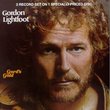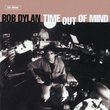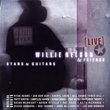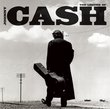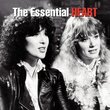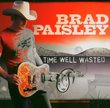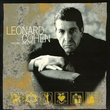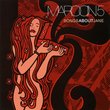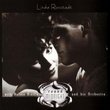| All Artists: Kris Kristofferson Title: Essential Kris Kristofferson Members Wishing: 5 Total Copies: 0 Label: Sony Release Date: 3/2/2004 Album Type: Original recording remastered Genres: Country, Folk, Pop Styles: Outlaw Country, Singer-Songwriters Number of Discs: 2 SwapaCD Credits: 2 UPCs: 074646499221, 5099751290629 |
Search - Kris Kristofferson :: Essential Kris Kristofferson
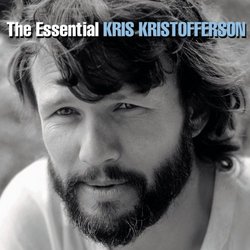 | Kris Kristofferson Essential Kris Kristofferson Genres: Country, Folk, Pop
|
Larger Image |
CD DetailsSimilarly Requested CDs
|
Member CD ReviewsReviewed on 4/25/2007... 2 DISK SET 0 of 1 member(s) found this review helpful.
CD ReviewsSongs that make us feel good J. Ross | Roseburg, OR USA | 04/01/2004 (4 out of 5 stars) "Essentialness is defined as the basics, the necessary listening to fully capture and appreciate a musician's career. Born the son of an air force general in Texas in 1936, Kris Kristofferson's first gig in Nashville was as a janitor cleaning ashtrays and "go-fer" at CBS Studios in the mid-60s. Encouraged by Johnny Cash who helped him "beat the devil," Kris had his first own real big on-the-road hit with "Me and Bobby McGee," especially after it was covered by Cash, Janis Joplin and Roger Miller. Songwriter Kristofferson fully established himself with "Help Me Make it Through the Night" and "Sunday Morning Coming Down" (which also got covered by Ray Stevens). His songs have now been covered by at least 500 artists from Elvis to Dylan. A great many of these 37 tracks come from his early albums, "Kristofferson" (ten tracks) and "The Silver Tongued Devil and I" (six tracks). I could also argue that some of his followup records from 1972-74 were less than monumental. I certainly question this collection's inclusion of five cuts from the insipid album "Jesus was a Capricorn" and two from the lackluster "Spooky Lady's Sideshow." The #1 country hit, "Why Me," would have been enough from the former. Kristofferson once questioned that song's hit status in Music City News - "It's too slow. It's sincere and it's pretty, but it's about a personal, religious thing. It's not what I ever thought a hit was."His 1978 album "Easter Island" was definitely better, and we see "The Bigger the Fool, the Harder the Fall" and "The Sabre and the Rose" included on this compilation. But why is there nothing from his 1986 "Repossessed" album, for example? That recording was highly-acclaimed and presented a body of new material after a five-year album hiatus. In fact, the only song on this collection that was recorded after 1984 is "Please Don't Tell Me How the Story Ends," from the late 1990s. However, "The Essential Kris" does give us over two hours of music. Of special note are those songs that Kristofferson recorded with others. "I'd Rather Be Sorry" is a duet with Rita Coolidge, his wife from 1973-79. Title cut from the album, "Highwayman," is sung with Waylon Jennings, Willie Nelson, and Johnny Cash. A duet with Willie Nelson, "How Do You Feel About Foolin' Around" was recorded in 1983.Most reviewers agree that Kris Kristofferson's early compositions were his best, and those songs are certainly essential listening. Since this 2-CD collection does not follow a rigid chronological presentation, perhaps more from his earliest albums should have been included on the second disc to balance the hits. Kristofferson has been recognized as a tender singer/songwriter who has a knack for making lyrical statements that people can personally relate to. Many of his songs simply make us feel good. To relive "the good times" that Kristofferson's music has brought us, this double album will nostalgically take us back. (Joe Ross, staff writer, Bluegrass Now)" +1/2 -- Weighted to seminal early work hyperbolium | Earth, USA | 06/06/2004 (4 out of 5 stars) "An artist as prolific as Kristofferson is necessarily difficult to capture in compilation, not least of which because his songs and singing are half his artistic story. Without the hits that others launched from Kristofferson's pen, you can't assemble a full view of his impact on Nashville and pop music in general. Still, Kristofferson's own recordings, especially those of songs made popular by others, are intimate and revealing in ways that no one else's could ever really be. Jopin sung the hell out of "Me and Bobby McGee," but she lost some of the down-and-out brokenness Kristofferson laid into it. Similarly, for "Help Me Make it Through the Night" and "For the Good Times" the hits became icons for Sammi Smith and Ray Price, respectively, but Kristofferson's own versions are perhaps even more unforgettable for his earthier, less-polished voice.These two discs lean heavily on Kristofferson's earlier work, which, for most listeners will be the right mix. As a recording artist, Kristofferson hit the ground in full sprint on his debut album, "Kristofferson." The follow-up, "The Silver Tongued Devil and I" was just as strong. These two albums alone contribute 16 of disc 1's 18 tracks. Disc 2, on the other hand, samples a dozen different albums, stopping for more than once at any particular release only a few times. The result is a highly consistent disc 1, and a more erratic disc 2. To be fair, one can't help but draw heavily upon Kristofferson's early pair, but given that disc 2 already fails to keep a linear timeline, it might have helped to add a few of the earlier tracks to disc 2.That said, what's here is magnificent, and shows off Kristofferson's lyrical poetry to great effect. Disc 1 is only bettered by buying Kristofferson's first two albums as reissues (something that any serious fan is highly recommended to do). Disc 2 does an adequate job of surveying the work that followed Kristofferson's initial burst of genius. Included are tracks recorded throughout the '70s, including "Highwayman" with Waylon Jennings, Willie Nelson and Johnny Cash, and duets with Willie Nelson, and then-wife Rita Coolidge.This is a good starter set, though anyone bitten by the works on disc 1 will want to pick up the full first two albums. Disc 2 provides a good sense of the path Kristofferson's work took, with good hints as to which albums listeners might wish to examine in full. 4-1/2 stars, if allowed fractional ratings."
|

 Track Listings (18) - Disc #1
Track Listings (18) - Disc #1